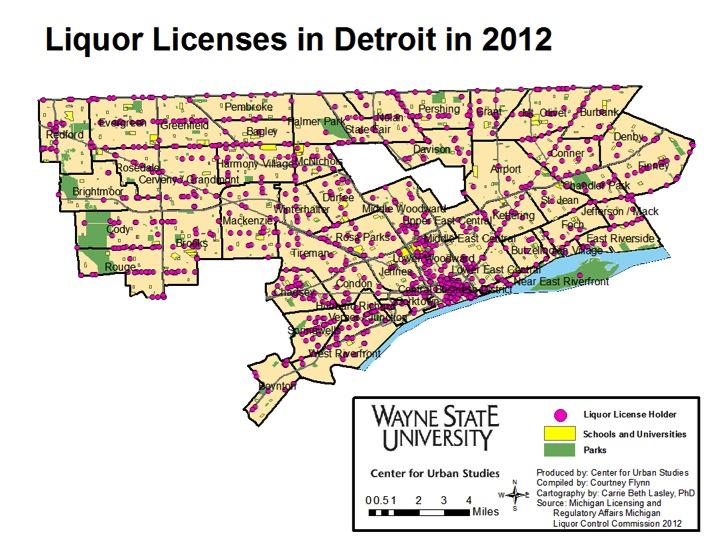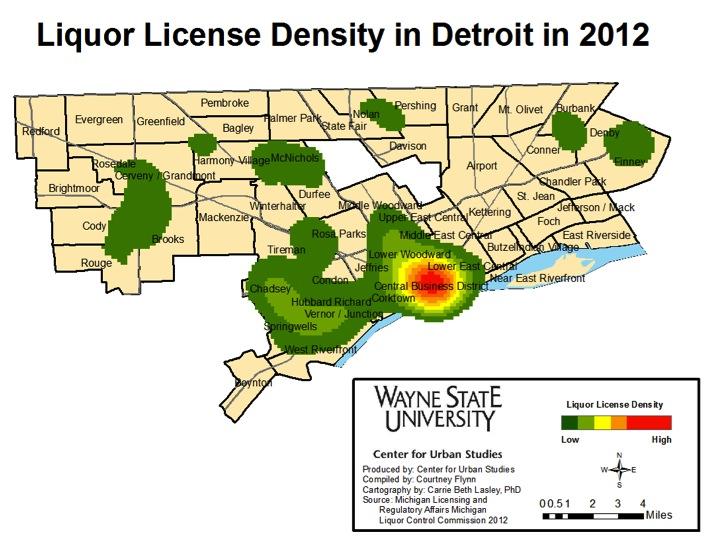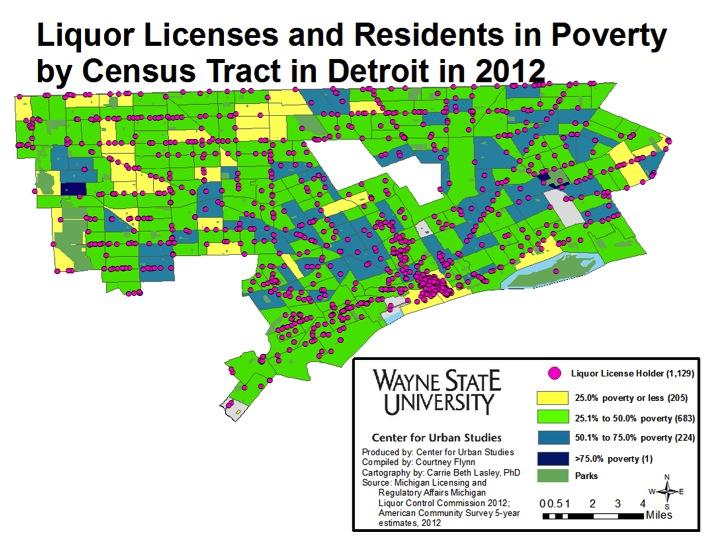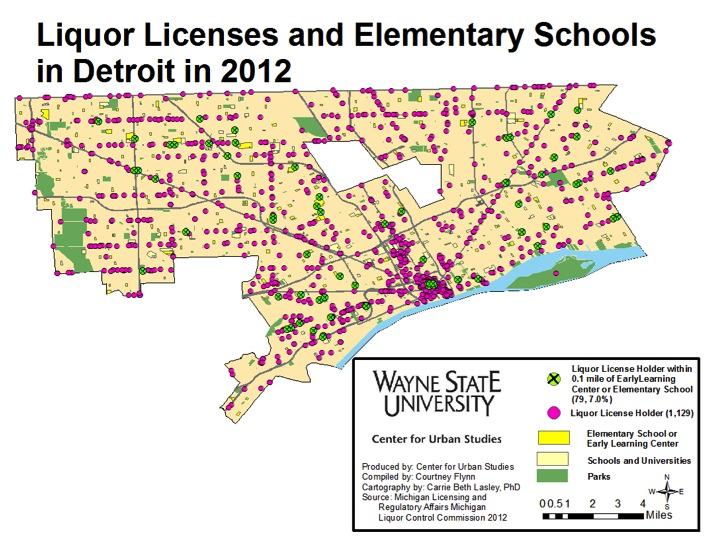In 2012, there were about 1,130 establishments in the city of Detroit with liquor licenses, of which nearly 7 percent were located within 0.1 mile of an early learning center or elementary school. In viewing the maps below, we see that the highest concentration of liquor license holders was within the Central Business District, with a medium density of the license holders spanning out into the lower Woodward Avenue, Corktown, and Lower East Central areas.
In Michigan there are several types of liquor licenses which can be obtained. These include licenses needed to sell just beer, those need to sell beer and liquor at a golf course, a hotel, a bar and at a private event. Additionally, brewpubs, distilleries, wholesalers (both those in state and those out of state bringing goods in), winemakers, and stores selling beer and/or liquor need a license. All liquor licenses in the state of Michigan are issued by the Michigan Liquor Control Commission.
According to a study by the Pacific Institute, a high concentration of liquor stores holders can may be related to several public safety and health problems, ranging from high rates of alcohol related hospitalizations, to pedestrian injuries, to high levels of crime and violence. According to data from the Federal Bureau of Investigation we know that Detroit’s crime rate was 2,122.9 per 100,000 residents in 2012, while the state of Michigan’s was 454.4 per 100,000 residents.


The above density map shows where the liquor licenses in Detroit are located and how some areas have a higher concentration of such licenses. As already stated, the highest concentration was in the Central Business District, where there is a combination of bars, restaurants, and liquor stores.
In the map below, we see where liquor license holders were located, along with what the poverty rates. The majority of the liquor license holders ( 683 or 60 percent) were located in census tracts where the poverty rates ranged between 25.1 and 50 percent. Although the Central Business District had the highest concentration of liquor license holders, the poverty rate in these census tracts was 25 percent or lower. Throughout the entire city there were 205 liquor license holders in census tracts where the poverty level was 25 percent or less.

Of the 1,129 liquor license holders in the city of Detroit, 79, or 7 percent, were located within 0.1 mile of an elementary school or early learning center.

According to the Pacific Institute study, a high concentration of liquor stores (in this post we look at liquor license holders) can lead to several public safety concerns, particularly crime.
In addition to crime being mentioned in the Pacific Institute study, it also discussed how the location of schools near liquor stores can affect the overall health and well-being of the community and the children within those communities. Although there are likely many suggestions on how to better a communities wellbeing, some solutions for Detroit officials may include: enforcing zoning ordinances to restrict nuisance activity by liquor stores or establishments that hold a license, using economic development strategies to transition current liquor stores into places for residents to access healthy foods, and working with the state to re-determine how many liquor licenses the city of Detroit should actually hold and/or what policies should be in place preventing the location of liquor license holders within a certain proximity to schools.